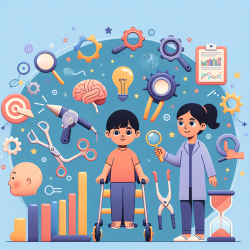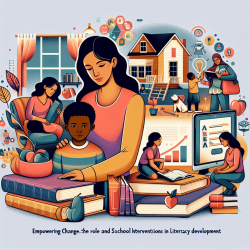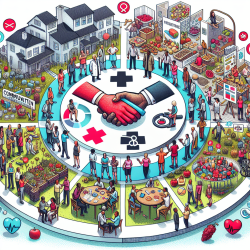Introduction
As a Special Education Director, it is crucial to stay informed about various health topics that can impact students' overall well-being. One such area is fertility health knowledge, which is often overlooked but essential for promoting long-term health. A recent study titled "Fertility Health Knowledge in U.S. Adults: Men Narrowing the Knowledge Gap" provides valuable insights into this topic, highlighting the importance of educating both men and women about fertility health.
Understanding the Research
The study assessed fertility health knowledge among university students, revealing that both men and women have significant gaps in their understanding of fertility health factors. The survey involved 17,189 students across three American universities, with 2,692 participants responding. Notably, 20% of the respondents were male, and the survey covered 30 questions related to modifiable and non-modifiable risk factors affecting fertility health.
The findings indicated that while men have improved their knowledge regarding male fertility, there are still considerable gaps in understanding modifiable risk factors. Both men and women demonstrated limited knowledge across various questions, emphasizing the need for comprehensive fertility health education.
Implementing Research Outcomes
Practitioners can enhance their skills by implementing the outcomes of this research in several ways:
- Incorporate Comprehensive Education: Include fertility health education as part of the curriculum in secondary schools, colleges, and universities. This education should cover both male and female fertility health factors, emphasizing modifiable risk factors.
- Promote Awareness in Clinical Settings: Use tools like the Fertility Health Knowledge Survey (FHKS) during clinical encounters to assess patients' knowledge and identify areas for improvement. Tailor education to address specific gaps in understanding.
- Encourage Lifestyle Modifications: Educate students and patients about lifestyle factors that can impact fertility health, such as nutrition, exercise, and substance use. Highlight the connection between fertility health and overall well-being.
Encouraging Further Research
While the study provides valuable insights, it also highlights the need for further research in this area. Practitioners should consider exploring the following topics:
- Best Practices for Fertility Education: Investigate the most effective methods and timing for delivering fertility health education to different age groups.
- Impact of Emerging Technologies: Examine how modern technologies and environmental factors affect fertility health and incorporate these findings into educational materials.
- Long-term Health Outcomes: Study the long-term health benefits of improved fertility health knowledge and lifestyle modifications.
Conclusion
Fertility health knowledge is a crucial component of overall health education. By implementing the outcomes of the research presented in the study, practitioners can improve their skills and contribute to better health outcomes for their students and patients. To read the original research paper, please follow this link: Fertility Health Knowledge in U.S. Adults: Men Narrowing the Knowledge Gap.










